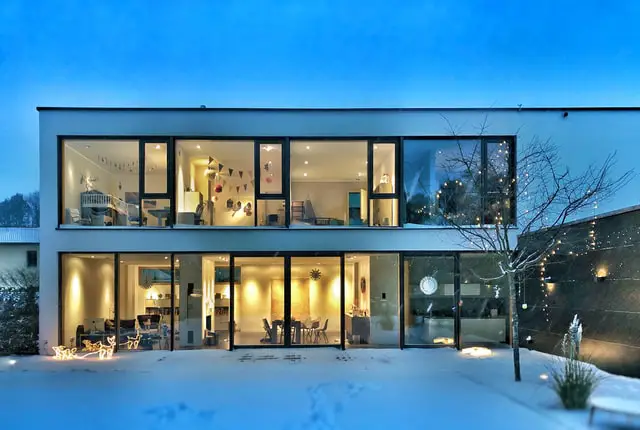
Imagine walking into your home after a long day, and with a simple voice command, the lights adjust to your perfect setting, your favorite music starts playing, and the temperature is just right. Sounds like something from a sci-fi movie, right? Well, it’s not—it’s the reality of home automation.
As smart technology continues to evolve, more homeowners are embracing the convenience, security, and energy efficiency that automation offers. But who exactly is driving this demand? Is it tech-savvy millennials, busy professionals, or luxury homeowners looking for the ultimate convenience? Understanding the target market for home automation is crucial for businesses and consumers alike.
In this article, we’ll explore the key demographics fueling the smart home revolution, the trends shaping the industry, and how businesses can effectively reach the right audience. Whether you’re a homeowner considering smart upgrades or a company looking to tap into this growing market, this guide will give you valuable insights into the future of home automation.
Understanding Home Automation
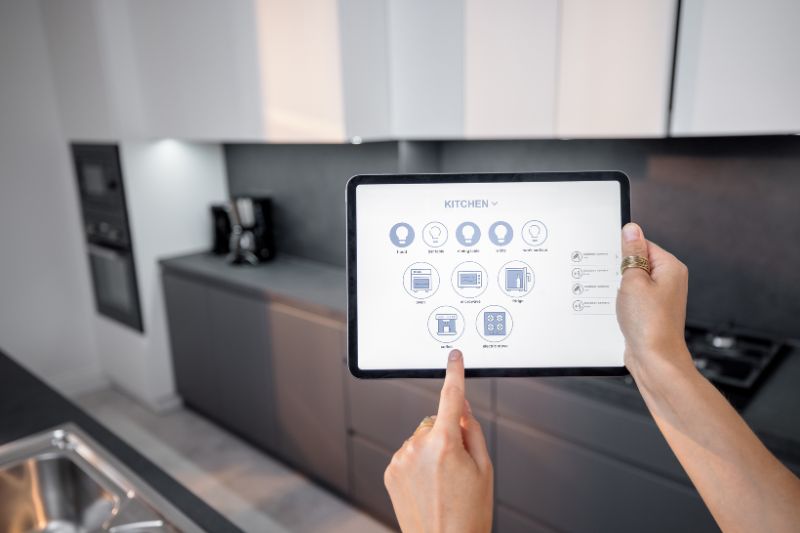
Home automation is no longer a futuristic concept—it’s an evolving industry transforming the way people live. From smart lighting to AI-driven security systems, the smart home market is expanding rapidly. But what exactly does home automation entail, and why is it gaining traction?
What Is Home Automation?
Home automation refers to the use of technology to control household systems and devices remotely or through automation. These systems range from simple smart plugs to comprehensive setups that integrate lighting, climate control, security, and entertainment into a single, seamless experience.
Modern home automation relies on the Internet of Things (IoT), allowing devices to communicate with each other and respond to user preferences. Voice assistants like Amazon Alexa, Google Assistant, and Apple Siri serve as central hubs, enabling users to control multiple devices effortlessly.
Key Benefits of Home Automation
Convenience and Efficiency
One of the biggest advantages of home automation is convenience. With a tap on a smartphone or a voice command, users can adjust lighting, lock doors, or start appliances. Automated routines, such as lights turning off when no one is in the room, enhance efficiency and reduce daily hassles.
Energy Savings and Sustainability
Smart thermostats like Nest and Ecobee optimize energy usage by learning user habits and adjusting temperatures accordingly. Similarly, smart lighting systems like Philips Hue use motion detection and scheduling to minimize electricity waste. According to the U.S. Department of Energy, smart thermostats can reduce heating and cooling costs by up to 10%.
Enhanced Security
Security is a major driver of home automation adoption. Smart cameras, motion sensors, and automated locks provide real-time monitoring and alerts. Homeowners can remotely grant access to visitors or receive instant notifications about unusual activity, enhancing both security and peace of mind.
Increased Home Value
As smart home technology becomes mainstream, properties equipped with automation features are gaining a competitive edge in the real estate market. A study by Coldwell Banker found that 81% of buyers prefer homes with smart technology, indicating its growing influence on property value.
The Rising Demand for Smart Homes
The global home automation market is projected to reach $163 billion by 2028, driven by advancements in AI, 5G connectivity, and increased consumer awareness. The growing availability of affordable smart devices is making automation more accessible, expanding its appeal beyond luxury homeowners to middle-income households.
Who Is the Target Market for Home Automation?
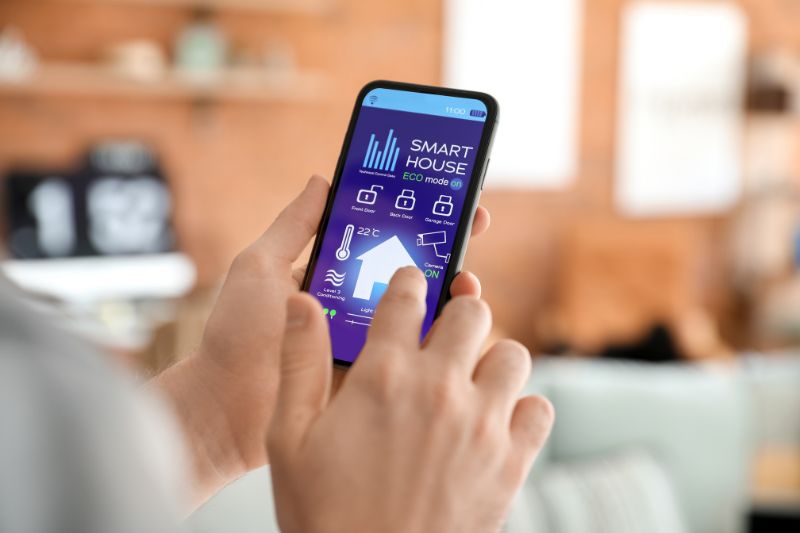
The home automation market is diverse, with different consumer segments embracing smart technology for various reasons. Understanding these target groups is essential for businesses looking to position their products effectively. From tech-savvy individuals to homeowners focused on security and sustainability, let’s explore the key demographics driving demand.
Homeowners vs. Renters
Homeowners are the primary adopters of smart home technology, as they have the freedom to make long-term investments in automation systems. Many view smart home upgrades as a way to enhance convenience, security, and property value. Smart thermostats, security systems, and whole-home automation solutions are particularly popular among homeowners looking to enhance their living spaces.
According to a survey by the National Association of Realtors, 46% of homeowners are willing to install smart home features to increase their home’s resale value. This trend indicates that real estate and home automation are increasingly linked, making homeowners a crucial target market.
However, renters are also showing growing interest in smart solutions that require minimal installation, such as smart plugs, portable security cameras, and voice assistants. These devices offer flexibility and convenience without requiring permanent modifications. Additionally, landlords who integrate smart locks, energy-efficient lighting, and remote access control into rental properties can attract tech-conscious tenants willing to pay a premium for modernized living spaces.
Tech Enthusiasts and Early Adopters
Tech-savvy consumers are often the first to embrace new home automation innovations. These individuals actively seek cutting-edge solutions, such as AI-powered assistants, smart home hubs, and advanced home networking systems. They value interoperability, ensuring that their smart devices integrate seamlessly for a fully connected experience.
Tech enthusiasts are often early adopters of emerging trends, such as smart mirrors, intelligent appliances, and predictive automation. They are more likely to invest in comprehensive smart home ecosystems rather than standalone devices. For businesses, this segment represents an opportunity to introduce premium and experimental products, such as smart home robots or fully automated kitchens. Marketing efforts targeting this group should focus on innovation, performance, and advanced features.
Luxury Homeowners
High-income individuals are drawn to sophisticated home automation systems that offer both convenience and exclusivity. Luxury smart homes often feature integrated control panels, customized lighting and ambiance settings, and high-end security solutions. Automated window treatments, climate control systems, and state-of-the-art entertainment systems are also popular among this segment.
This market segment is less price-sensitive and prioritizes high-performance, aesthetically pleasing automation systems. Companies targeting this group should emphasize premium features, bespoke installations, and white-glove service. Offering professional installation and personalized consultations can also enhance appeal to luxury buyers looking for a seamless, fully customized experience.
Eco-Conscious Consumers
Sustainability is a growing concern for many consumers, and smart home technology plays a significant role in energy efficiency. Eco-conscious buyers invest in smart thermostats, automated blinds, and energy-monitoring systems to reduce their carbon footprint and lower utility bills.
According to a report by Deloitte, 68% of consumers are willing to pay more for energy-efficient technology. Smart thermostats like Nest and Ecobee help reduce heating and cooling costs by up to 10%, while smart irrigation systems optimize water usage in gardens. Businesses can appeal to this segment by highlighting the long-term cost savings and environmental benefits of home automation. Certifications such as ENERGY STAR and LEED compliance can further attract eco-conscious buyers who prioritize sustainability.
Elderly and Disabled Individuals
For seniors and individuals with disabilities, home automation enhances accessibility and safety. Voice-activated controls, fall detection sensors, and automated lighting improve quality of life by reducing physical effort and increasing security. Smart speakers integrated with voice assistants can help seniors control their environment without needing to navigate complex interfaces.
Home automation also supports aging in place, allowing older adults to live independently for longer. Automated medication reminders, smart doorbells with two-way audio, and emergency response systems provide additional layers of security and convenience. Businesses serving this demographic should focus on ease of use, reliability, and integration with medical alert systems. Providing customer support and hands-on setup assistance can also increase adoption among older consumers who may not be as tech-savvy.
Busy Professionals and Families
Time-saving and security-focused smart home solutions are particularly appealing to professionals and families balancing work and home life. Automated locks, video doorbells, and remote-controlled appliances allow users to manage their homes efficiently, even when they’re away.
Busy parents appreciate smart security systems that notify them when their children arrive home from school or when someone approaches the house. Smart kitchen appliances, such as Wi-Fi-enabled coffee makers and refrigerators with inventory tracking, simplify meal planning and daily routines.
Similarly, professionals who travel frequently benefit from remote monitoring and automation features that maintain their home’s security and energy efficiency. Geofencing technology, which automatically adjusts home settings based on the user’s location, is particularly useful for those who are often on the move.
Market Trends and Growth Opportunities

The home automation industry is evolving rapidly, driven by advancements in technology, changing consumer preferences, and increasing demand for energy efficiency and security. Businesses that understand these trends can position themselves to capitalize on the growing market. Below are some of the key trends shaping the future of home automation, along with opportunities for growth.
Increasing Adoption of AI and IoT
Artificial intelligence (AI) and the Internet of Things (IoT) are at the core of modern home automation. AI-powered smart assistants like Amazon Alexa, Google Assistant, and Apple Siri are becoming more intuitive, allowing users to control multiple devices with seamless voice commands.
Machine learning algorithms are improving automation by predicting user behavior and optimizing energy usage. For example, smart thermostats learn a homeowner’s schedule and adjust temperature settings automatically to reduce energy waste. Similarly, AI-powered security cameras can distinguish between familiar faces and potential intruders, minimizing false alerts.
Businesses in the smart home industry can leverage AI and IoT advancements by developing products that integrate seamlessly with existing ecosystems. Offering AI-driven personalization and automation can enhance user experience and drive customer loyalty.
Growing Demand for Energy Efficiency
Rising energy costs and environmental concerns are pushing consumers toward energy-efficient smart home solutions. Devices such as smart thermostats, automated lighting, and energy-monitoring systems are in high demand as homeowners seek ways to reduce their carbon footprint and lower utility bills.
According to the International Energy Agency (IEA), smart home technology could reduce global electricity consumption by 10% through better energy management. The demand for sustainable solutions presents a strong opportunity for businesses to develop and market energy-efficient devices that align with green initiatives.
Companies can further appeal to eco-conscious consumers by obtaining certifications like ENERGY STAR and promoting sustainability in their marketing efforts. Partnering with utility companies to offer rebates and incentives for smart home upgrades can also drive adoption.
Expansion of Smart Security Solutions
Home security is a major driver of home automation adoption. The rise in remote work and an increased focus on personal safety have led to a surge in demand for smart locks, video doorbells, and surveillance systems.
Products like Ring, Arlo, and Nest Cam provide homeowners with real-time monitoring and mobile notifications, giving them peace of mind whether they are at home or away. Features such as facial recognition, package detection, and two-way audio enhance security and user convenience.
Businesses in this sector can explore opportunities by developing more advanced security solutions, such as AI-driven threat detection, biometric authentication, and drone-based home monitoring. Subscription-based security services also present a recurring revenue model, offering long-term business sustainability.
Rise of Subscription-Based Smart Home Services
As home automation systems become more complex, consumers are increasingly interested in subscription-based services that provide ongoing support, software updates, and advanced features.
Many companies are offering cloud-based storage for security footage, remote diagnostics for smart appliances, and premium automation features through monthly or yearly subscriptions. This model not only provides consumers with added value but also creates a steady revenue stream for businesses.
By bundling services such as 24/7 monitoring, enhanced AI capabilities, and extended warranties, businesses can increase customer retention and enhance user experience. Developing flexible subscription plans that cater to different consumer needs can further boost adoption rates.
Integration With Smart Cities and 5G Connectivity
The expansion of smart cities and the rollout of 5G networks are accelerating the adoption of home automation. Faster, more reliable connectivity enables real-time communication between devices, reducing lag and improving overall system performance.
Smart home technology is also becoming more integrated with municipal infrastructure. Smart grids, for example, allow homes to optimize energy consumption based on real-time demand, while connected traffic systems help homeowners plan efficient routes.
Businesses that develop solutions compatible with smart city initiatives can gain a competitive edge. Partnering with local governments and infrastructure providers to integrate home automation with broader urban ecosystems presents significant growth opportunities.
Increasing Consumer Awareness and Accessibility
As smart home technology becomes more mainstream, affordability and ease of use are improving. Previously, home automation was considered a luxury, but falling prices and user-friendly interfaces are making it accessible to a wider audience.
Retailers such as Amazon, Best Buy, and Home Depot are expanding their smart home product offerings, further driving consumer awareness. Additionally, DIY smart home solutions are growing in popularity, allowing consumers to set up automation systems without professional installation.
To tap into this trend, businesses should focus on simplifying product installation, enhancing user education through online resources, and offering customer support to help consumers navigate the transition to smart home living. Providing financing options or bundle discounts can also make home automation more attainable for budget-conscious buyers.
Strategies for Reaching the Home Automation Market
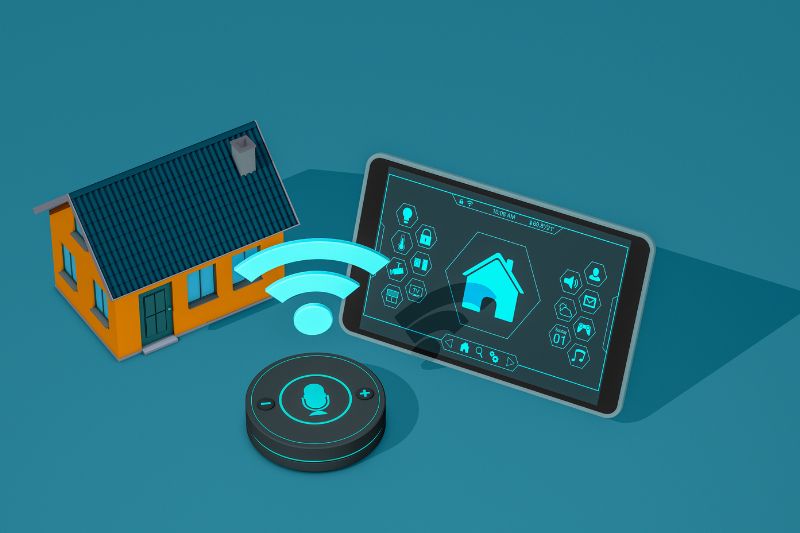
Successfully targeting the home automation market requires a deep understanding of consumer needs, effective marketing strategies, and a strong value proposition. Businesses must position their products to appeal to different customer segments while addressing concerns about cost, security, and usability. Below are key strategies to effectively reach and engage potential buyers.
Identifying the Right Customer Segments
A one-size-fits-all approach does not work in the home automation industry. Companies must segment their audience based on demographics, lifestyle, and purchasing behavior.
- Tech Enthusiasts and Early Adopters are drawn to cutting-edge innovation. They respond well to marketing that highlights advanced features, integration capabilities, and future-proof technology.
- Eco-Conscious Consumers prioritize energy efficiency and sustainability. Messaging that focuses on long-term cost savings and environmental benefits will resonate with this group.
- Luxury Homeowners seek premium, high-performance solutions. Brands should emphasize customization, aesthetics, and seamless integration with high-end home designs.
- Busy Professionals and Families value convenience and security. Marketing efforts should highlight automation features that save time, enhance safety, and provide peace of mind.
- Elderly and Disabled Individuals benefit from smart home technology that enhances accessibility. Demonstrating how automation can support independent living is key to reaching this segment.
By tailoring messaging to the needs and priorities of each group, businesses can improve engagement and drive conversions.
Leveraging Digital Marketing and E-Commerce
The majority of home automation purchases begin with online research. A strong digital presence is essential for reaching potential buyers at different stages of the purchasing journey.
- Search Engine Optimization (SEO): Optimizing website content for relevant keywords, such as “smart home security system” or “energy-efficient automation,” can improve visibility on search engines.
- Content Marketing: Educational blogs, how-to guides, and video tutorials help demystify smart home technology and establish brand authority.
- Social Media Advertising: Targeted campaigns on platforms like Facebook, Instagram, and YouTube can reach specific demographics, driving interest and engagement.
- Influencer and Tech Reviews: Collaborating with tech influencers and industry experts can build credibility and showcase product functionality to a wider audience.
- E-Commerce Optimization: Ensuring a seamless shopping experience with clear product descriptions, customer reviews, and easy purchasing options enhances online conversions.
A multi-channel digital marketing approach increases brand awareness and positions businesses as trusted providers of smart home solutions.
Offering Flexible Pricing and Financing Options
Cost remains a major consideration for consumers exploring home automation. Offering flexible payment options can help overcome price barriers.
- Bundled Packages: Grouping complementary products, such as a smart lock and video doorbell, provides added value and encourages larger purchases.
- Subscription Models: Providing ongoing cloud storage, software updates, and customer support through subscription plans creates recurring revenue while enhancing user experience.
- Financing and Buy Now, Pay Later (BNPL): Allowing customers to spread costs over time can make smart home upgrades more accessible.
By addressing cost concerns with strategic pricing and financing options, businesses can expand their customer base and drive sales.
Enhancing Customer Education and Support
Many consumers are interested in home automation but feel overwhelmed by the complexity of installation and integration. Providing educational resources and strong customer support can increase adoption rates.
- In-Store Demonstrations and Showrooms: Hands-on experiences allow customers to see how devices function in real-world settings.
- Live Chat and Virtual Consultations: Offering real-time assistance through website chat or virtual consultations helps address customer concerns.
- Step-by-Step Installation Guides: Clear instructions, video tutorials, and online troubleshooting resources improve user confidence in setting up devices.
- Customer Support and Maintenance Services: Ensuring responsive customer service and warranty options builds trust and encourages long-term brand loyalty.
Making smart home technology more approachable through education and support reduces hesitation and accelerates adoption.
Building Strategic Partnerships
Collaborating with other industry players can open new market opportunities and enhance product offerings.
- Home Builders and Real Estate Developers: Partnering with construction companies to integrate smart technology into new homes creates demand at the development stage.
- Utility Companies: Working with energy providers to offer rebates on smart thermostats and energy-efficient devices encourages adoption among cost-conscious consumers.
- Retailers and E-Commerce Platforms: Expanding distribution through partnerships with major retailers and online marketplaces increases product accessibility.
- Home Security Companies: Integrating smart home technology with security services can provide a comprehensive home protection solution.
Strategic partnerships strengthen brand positioning and enable businesses to reach consumers through multiple channels.
Personalizing User Experience with AI and Data Analytics
Advancements in AI and data analytics allow businesses to offer personalized experiences that enhance customer satisfaction.
- Predictive Automation: AI-driven systems that learn user behavior and adjust settings automatically improve convenience and efficiency.
- Personalized Recommendations: Analyzing customer preferences to suggest relevant products increases cross-selling opportunities.
- Smart Home Ecosystem Integration: Ensuring compatibility with popular platforms like Amazon Alexa, Google Home, and Apple HomeKit enhances user experience.
Overcoming Challenges in the Home Automation Market
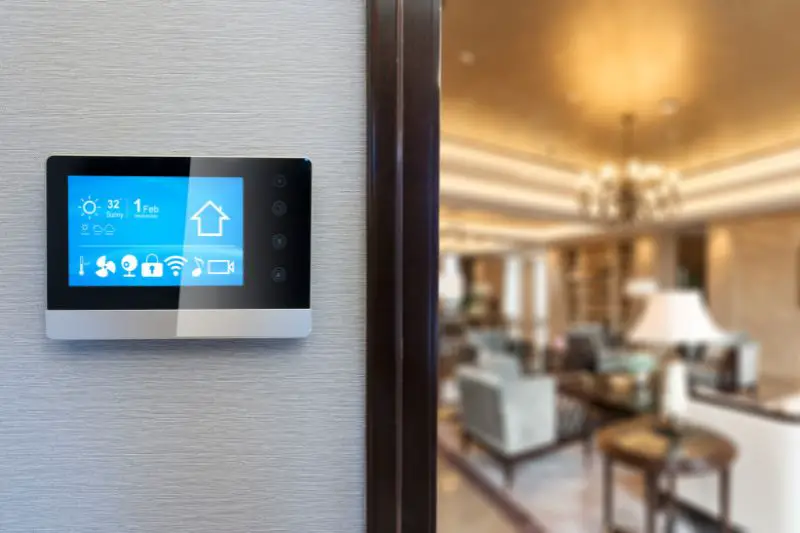
While the home automation industry presents significant growth opportunities, businesses must navigate several challenges to achieve success. From addressing security concerns to ensuring seamless device compatibility, overcoming these obstacles is key to driving adoption and maintaining customer trust.
Addressing Security and Privacy Concerns
One of the biggest barriers to widespread adoption of smart home technology is the concern over data security and privacy. Consumers worry about hacking, data breaches, and unauthorized access to their personal information.
- Enhancing Data Encryption: Implementing end-to-end encryption for communication between devices helps protect sensitive data from cyber threats.
- Ensuring Compliance With Privacy Regulations: Adhering to data protection laws such as the General Data Protection Regulation (GDPR) and the California Consumer Privacy Act (CCPA) reassures consumers about their privacy.
- Providing Regular Security Updates: Frequent software updates and vulnerability patches minimize security risks and maintain device integrity.
- Educating Consumers on Best Practices: Informing users about strong password management, two-factor authentication, and secure network setups enhances overall security.
Building a reputation for security and transparency is essential for earning consumer trust and increasing smart home adoption.
Ensuring Device Compatibility and Interoperability
The growing number of smart home devices from different manufacturers has led to interoperability challenges. Consumers expect seamless integration across their devices, but varying communication protocols often create frustration.
- Adopting Universal Standards: Supporting industry-wide standards like Matter, Zigbee, and Z-Wave can improve device compatibility and simplify user experience.
- Offering Multi-Platform Integration: Ensuring products work with major ecosystems such as Amazon Alexa, Google Home, and Apple HomeKit increases accessibility.
- Providing API Access for Developers: Allowing third-party developers to integrate with smart home platforms enhances functionality and expands the ecosystem.
- Developing All-in-One Smart Hubs: Centralized control systems that connect multiple smart devices help eliminate compatibility issues.
Prioritizing interoperability enhances user convenience and encourages more consumers to invest in smart home ecosystems.
Reducing Complexity in Installation and Setup
Many potential customers hesitate to adopt home automation due to perceived complexity in setup and operation. Simplifying the installation process can significantly increase adoption rates.
- Developing Plug-and-Play Solutions: Devices that require minimal setup, such as smart plugs and wireless sensors, attract a broader audience.
- Enhancing User Interfaces: Intuitive mobile apps and voice-controlled assistants make smart home management more accessible.
- Offering Professional Installation Services: Providing expert setup options for more complex systems can ease consumer concerns.
- Creating Interactive Tutorials and Guides: Step-by-step video instructions and virtual demonstrations help users navigate installation confidently.
Making smart home technology more user-friendly ensures that customers feel comfortable integrating automation into their daily lives.
Managing Cost Perceptions and Value Justification
While smart home technology has become more affordable, cost remains a barrier for many consumers. Businesses must effectively communicate the value of their products to justify the investment.
- Highlighting Long-Term Savings: Showcasing energy-efficient solutions that reduce electricity bills over time makes smart home upgrades more appealing.
- Offering Entry-Level Solutions: Providing affordable starter kits allows consumers to experience the benefits of automation before committing to larger investments.
- Introducing Flexible Payment Plans: Financing options such as monthly installment plans make smart home devices more accessible to budget-conscious buyers.
- Demonstrating Return on Investment (ROI): Using data-driven case studies to illustrate cost savings and increased home security can persuade hesitant buyers.
By positioning smart home technology as a long-term investment rather than a luxury expense, businesses can attract a wider customer base.
Keeping Up With Rapid Technological Advancements
The home automation industry is evolving quickly, making it challenging for businesses to stay ahead of trends and maintain a competitive edge.
- Investing in Research and Development: Continuous innovation ensures that products remain relevant and competitive in a fast-changing market.
- Monitoring Consumer Preferences: Gathering customer feedback and analyzing market trends help businesses adapt to shifting demands.
- Developing Scalable Solutions: Designing products that can be upgraded through software updates extends their lifecycle and enhances user experience.
- Partnering With Emerging Tech Companies: Collaborating with startups and tech leaders enables businesses to integrate the latest advancements into their offerings.
Remaining agile and forward-thinking is essential for maintaining a strong presence in the evolving smart home landscape.
Conclusion
The home automation market is evolving rapidly, driven by technological advancements, shifting consumer expectations, and the growing demand for convenience and efficiency. Businesses that understand their target audience, address key challenges, and embrace emerging trends will be best positioned to capitalize on this expanding industry.
By prioritizing security, interoperability, and user-friendly design, companies can build trust and encourage wider adoption. Leveraging AI, smart energy solutions, and high-speed connectivity will further enhance the smart home experience. As the market continues to grow, businesses that focus on innovation and seamless integration will not only meet consumer needs but also shape the future of home automation.
